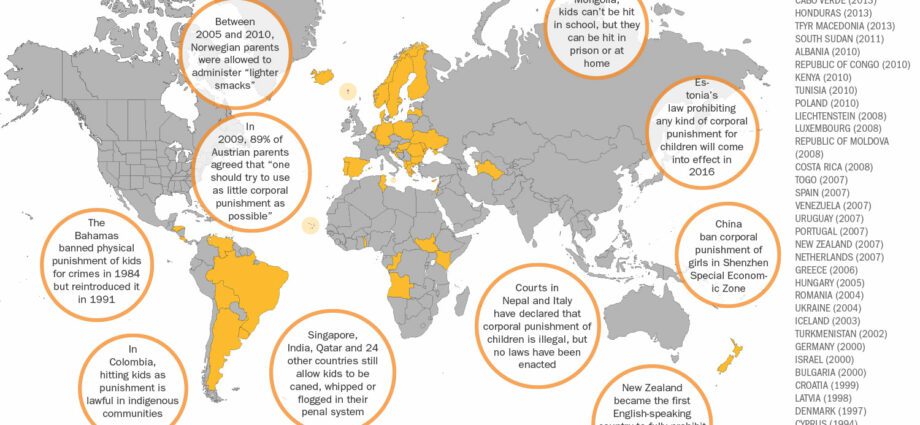Contents
Spanking is now outlawed!
Since December 22, 2016, spanking has been officially prohibited in France, as is any corporal punishment. A ban long demanded by the Council of Europe, which criticized France for “not providing for a sufficiently clear, binding and precise ban on corporal punishment.” It is therefore done! If this vote was late, it is certainly because the French, in their majority, were opposed to it: in March 2015, 70% of the French were against this ban, even if 52% of them considered that it was worth better not to give it to children (source Le Figaro).
Spanking, a not so trivial gesture for the child
When we ask them, some moms explain that “spanking every now and then can’t hurt » or even say: “I had spankings when I was little and it didn’t kill me”. Olivier Maurel, author of the book “Spanking, questions on educational violence”, answers very clearly that “if it is to give a little spanking, why do it? You might as well avoid it and choose another mode of education ”. For him, whether it is a light slap, even on the diaper, or a slap, “we are in light violence and the effect on the child is not trivial.” Indeed, according to him, “the stress generated by the tape directly impacts the health of the child by causing digestive disorders for example”. For Olivier Maurel, « the so-called mirror neurons of the brain record all the gestures experienced on a daily basis and this mechanism prepares us to reproduce them. Thereby when you hit a child, you pave the way for violence in their brain and the brain registers it. And the child will reproduce this violence in his turn in his life. “.
Discipline Without Punishment
Some parents see spanking as a way “not to lose authority over their child.” Monique de Kermadec, a child psychologist, believes that “Spanking does not teach the child anything. Parents should be advised to discipline without punishment ”. Indeed, the psychologist explains “that even if the parent reaches a certain state of nervousness when the child crosses a limit, he must avoid getting angry and especially not hitting him”. One of his advice is to verbalize or punish the child, when possible, to accompany the reprimand. Because, when the parent raises his hand, “the child is subjected to the humiliation of the gesture and the parent is made obey by violence which damages the quality of their relationship”. For the psychologist, the parent must “educate through words above all”. Parental authority cannot be based on violence if only for the adult in the making. Monique de Kermadec recalls that if “education is based on violence, the child will seek this mode of operation, there will be an escalation. The child sees it badly and will have a desire for revenge ”.
A contested educational method
Many moms think that “a spanking never hurts”. It is this kind of assertion that many associations have been fighting for several years. In 2013, the Children’s Foundation hit hard with a campaign called. This fairly explicit short film featured an exasperated mother slapping her son. Filmed in slow motion, the effect increased the impact and deformation of the child’s face.
In addition, the association l’Enfant Bleu published in February 2015 the results of a large abuse investigation. More than one in 10 French people would be affected by physical violence, 14% declared having been victims of physical, sexual or psychological abuse during their childhood and 45% suspect at least one case in their immediate environment (family, neighbors, colleagues, close friends). In 2010, INSERM recalled that in developed countries such as France, two children die every day following mistreatment.
Zanîn :
“Spanking, given with the bare hand as it is now given to children, dates back to at least the 18th century. Then, in the 19th and especially in the 19th century, it was probably more of a family practice. In schools we hit especially with the rods, and, at the origin, the Historical Dictionary of the French language of Alain Rey (Robert) specifies that the word “spanking” does not come from buttock, but from “fascia”, that is to say “bundle” (of branches or wicker sticks). It was only later, probably at the beginning of the XNUMXth century, that confusion with the word “buttock” occurred, hence the specialization: “blows given on the buttocks”. Previously, it seems that the beatings were given more on the back. In families, from the XNUMXth century, the use of the swift was very frequent. But we also hit with wooden spoons, brushes and shoes ”. (Interview by Olivier Maurel).










